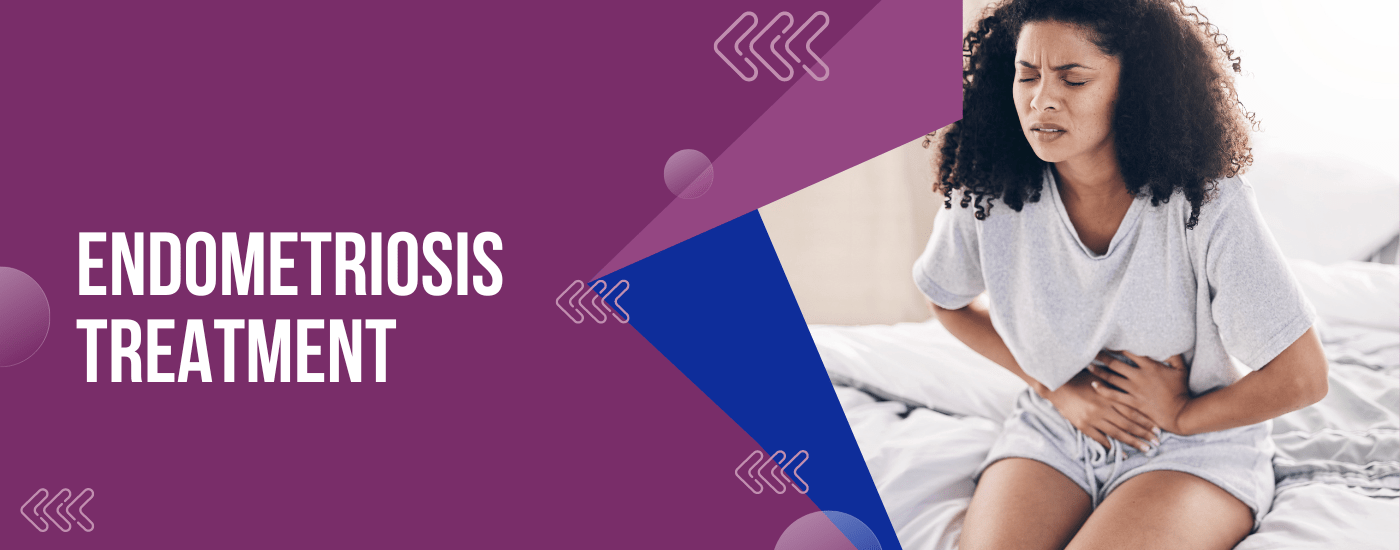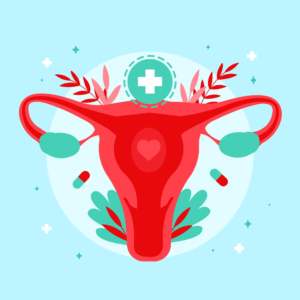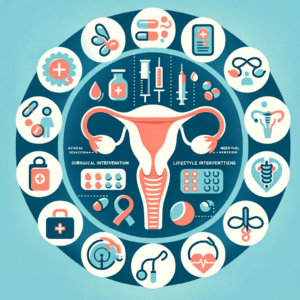
Endometriosis Treatment In Mumbai
Overview
Endometriosis is when tissue like the lining of the uterus grows outside the uterus. This can cause a lot of pain, especially during periods. Some other symptoms include pain during sex, trouble getting pregnant, and stomach issues. Doctors aren’t sure why some people get endometriosis, but it might have to do with genes or hormones. There are different types of endometriosis, like ovarian, peritoneal, and deep infiltrating. Treatment can involve pain medicine, hormones, or surgery to remove the extra tissue.
Considering the widespread impact of endometriosis, seeking expert care is essential. At Babies & Us Endometriosis Centre, led by Dr. Nandita Palshetkar, we offer comprehensive solutions tailored to alleviate symptoms and improve quality of life. Our approach combines the expertise of gynecologists and pain management experts to provide complete care.

Learn more about endometriosis and take control of your health today!
Moving on, here is some information on what kind of endometriosis treatments that are offered by us.
Types Of Endometriosis Treatments We Provide

- Medication:Includes pills, and syrups to manage pain, hormonal issues and other related symptoms.
- Hormone therapy:Birth control pills or gonadotropin-releasing hormone (GnRH) agonists to regulate ovulation and estrogen levels to reduce severity of symptoms.
- Surgery:In case medications fail, minimally invasive procedures are the last resort to completely remove endometrial tissue or cysts.
- Fertility treatment:Assisted reproductive technologies (ART) and IVF are recommended for those experiencing infertility due to endometriosis.
- Lifestyle changes:Diet modifications, exercise, and stress management techniques complement the ongoing treatment.
- Alternative therapies: Some women opt for Acupuncture or chiropractic care, which might help in pain relief.
Find what suits you the best. Get in touch with a doctor
Check out what costs your treatment will incur here in Mumbai.
Costs Of Endometriosis Treatment In Mumbai
| Treatment Type | Cost Range (INR) |
| Medication | 500 – 3000 per month |
| Hormone Therapy | 2000 – 8000 per month |
| Surgery | 20,000 – 1,00,000 |
| Fertility Treatment | 10,000 – 2,00,000 |
| Alternative Therapies | 1000 – 5000 per session |
While these are still approx costs, many factors influence how they change:
- Different treatments have varying costs, with surgical procedures typically more expensive than medication.
- Advanced cases may require more extensive and costly interventions.
- Fees charged by specialists, surgeons, and clinics can significantly impact overall costs.
- Costs associated with hospitalization, operating rooms, and post-operative care contribute to the total expense.
- Longer treatment durations may incur higher costs, especially for ongoing medication or therapy.
- Additional tests, consultations, or procedures may increase overall expenses.
Insurance Coverage: This depends on the individual’s insurance plan and the specific treatment needed. Usually, insurance plans may cover some or all costs associated with treatments but coverage levels can vary.
It’s essential to review your insurance policy and consult with your provider to understand what treatments are covered.
Want to know more in detail about costs? Contact your doctor.
Let’s learn about our team & doctor here at Babies & Us Centre In Mumbai.
Our Endometriosis Treatment Doctor
Dr. Nandita Palshetkar is a trusted doctor for infertility management. With over 30 years of experience, she has helped more than 30,000 couples become parents.
Her endometriosis success rate is outstanding, averaging 45%-50% for women under 35.
It does get even better, learn about the success rates & results!

Success Rates & Results Of Our Endometriosis Treatments

The success of endometriosis treatments keeps changing depending on factors such as the severity of the condition, the type of treatment, and individual patient needs.
- Laparoscopic surgery:Success rates range from 30% to 80%, depending on the extent of the disease and the skill of the surgeon.
- Hormonal therapies (such as birth control pills or GnRH agonists):Some studies report relief of symptoms in 50% to 80% of patients.
- Assisted reproductive technologies (ART) for infertility associated with endometriosis: Success rates range from 20% to 40% per treatment cycle, depending on factors such as the woman’s age and the severity of endometriosis.
It’s important to consult with a specialist to discuss the best treatment options based on your unique condition.
Know how our approach can improve your condition, schedule a consultation now.
We want to introduce you to the benefits of choosing us for your treatment.
Why Choose Babies & Us?
- Specialized Focus: Facilities like Babies & Us often have a specialized focus on fertility and reproductive health issues, including conditions like endometriosis, which can affect fertility.
- Comprehensive Care: They typically offer comprehensive care that addresses the medical emotional and psychological aspects of dealing with endometriosis, providing a more holistic approach to treatment.
- Advanced Treatment Options: Utilizes advanced treatment options and the latest technologies in managing and treating endometriosis.
- Multidisciplinary Team: Patients benefit from a multidisciplinary approach, which may include gynecologists, fertility specialists, pain management experts, and counselors, ensuring all aspects of the condition are addressed.
- Personalized Treatment Plans: They often emphasize personalized treatment plans tailored to each patient’s specific condition, symptoms, and fertility goals. This maximizes the chances of successful management of endometriosis and improvement in quality of life.
- Positive Patient Outcomes: Such clinics often showcase positive patient outcomes, with testimonials and success stories that can provide hope and reassurance to those seeking treatment for endometriosis..
Take the first step towards relief and schedule your appointment with a doctor.
FAQs
Yes, endometriosis can return after treatment because it’s a chronic condition. Even if symptoms improve with treatment, the underlying endometrial tissue may still be present and can grow back over time.
Some women find relief by avoiding processed foods and eating a healthy diet. This might help manage symptoms.
Yes, stress can make symptoms worse. When you’re stressed, your body releases hormones that can increase pain and inflammation.
Some natural remedies might ease symptoms for some people, but it’s important to talk to a doctor before trying them.
Yes, it can make it harder to get pregnant. Endometriosis can cause issues like ovarian cysts or inflammation that make conception difficult. It can also lead to complications during pregnancy, like miscarriage or having a baby too early.

